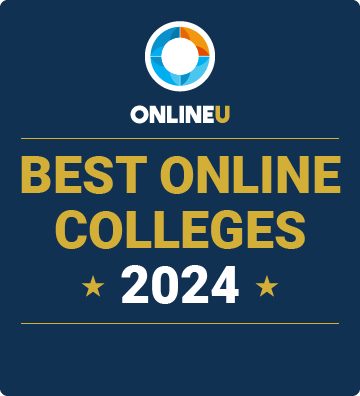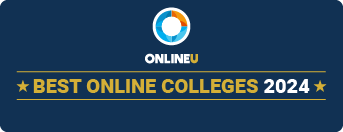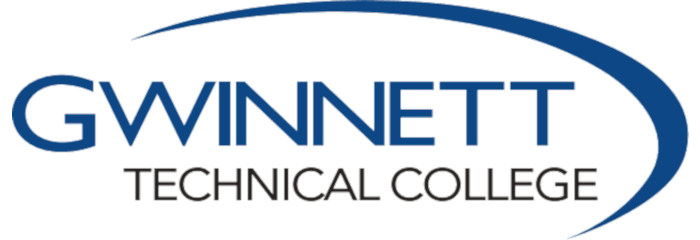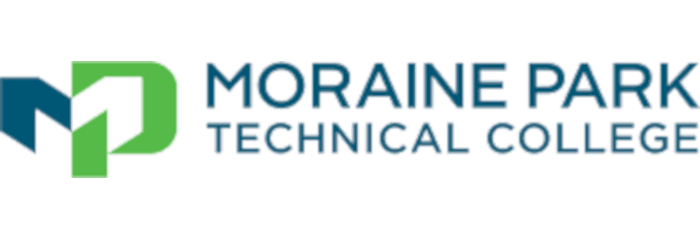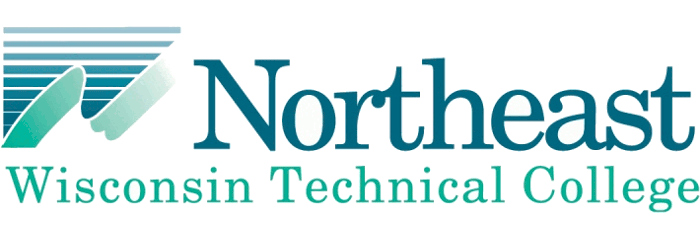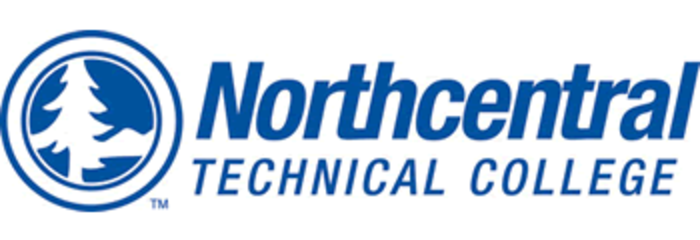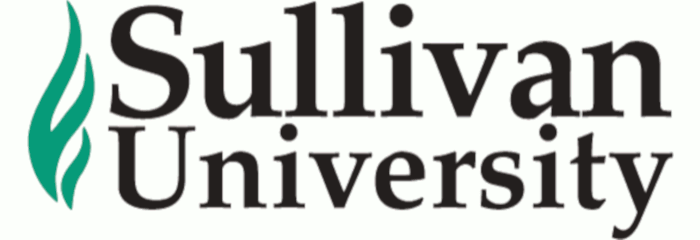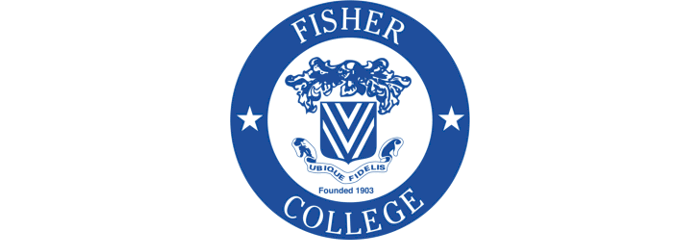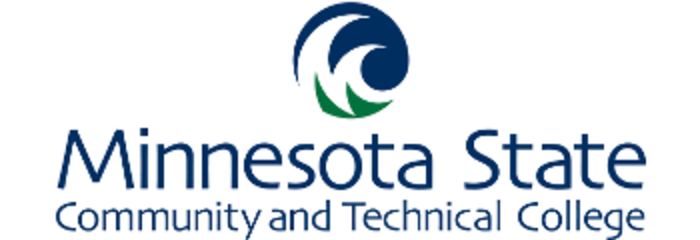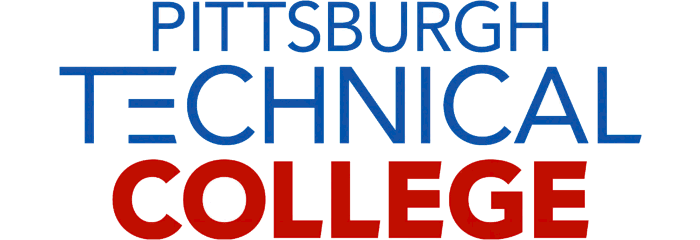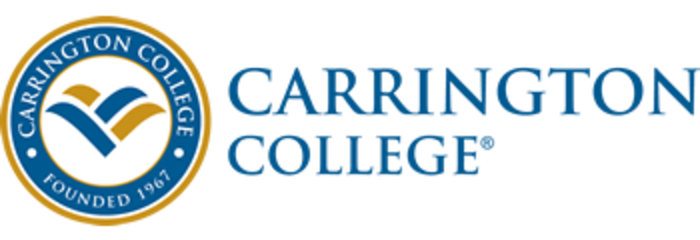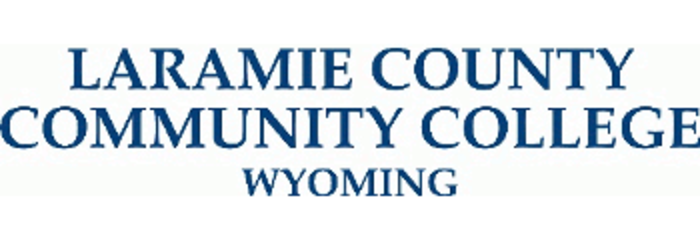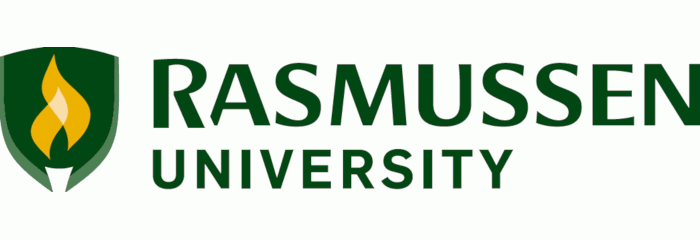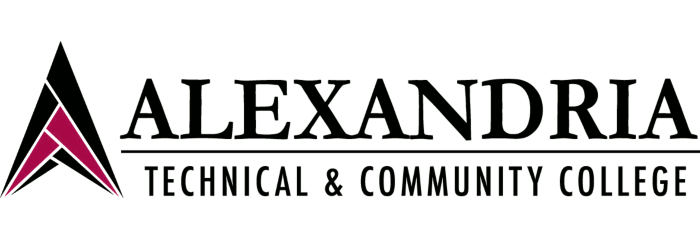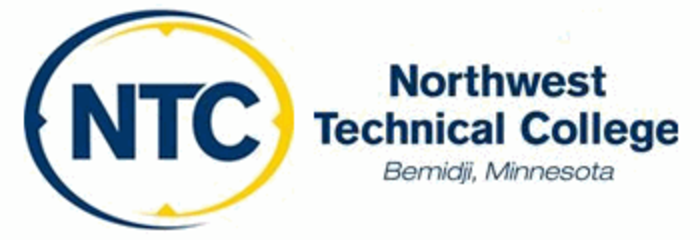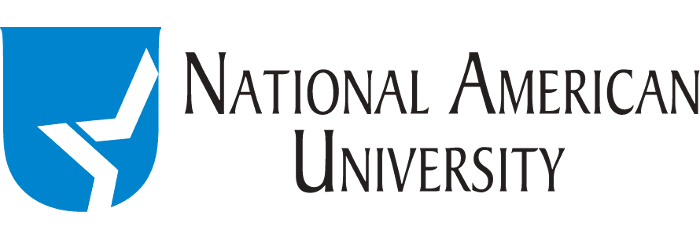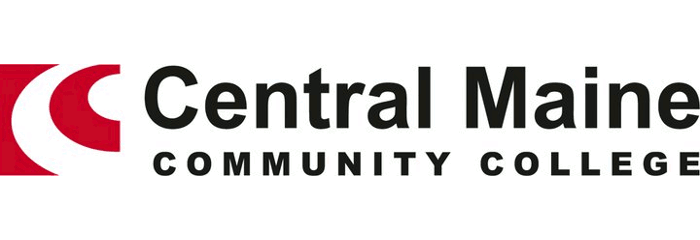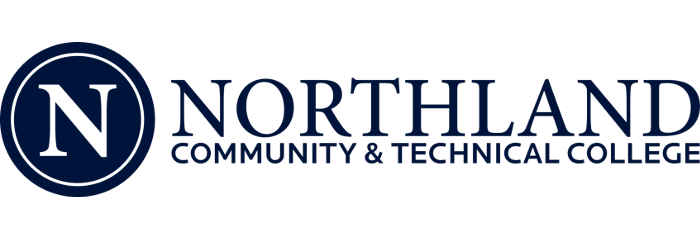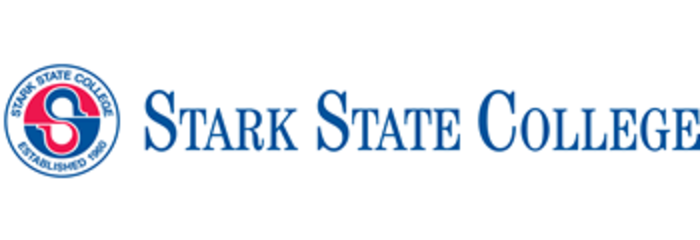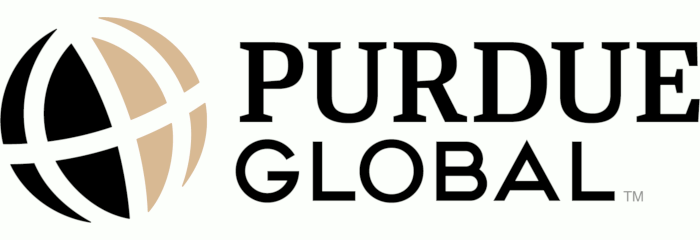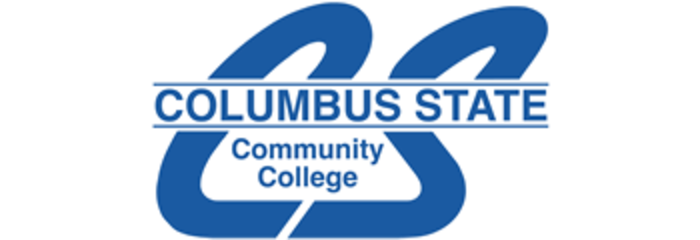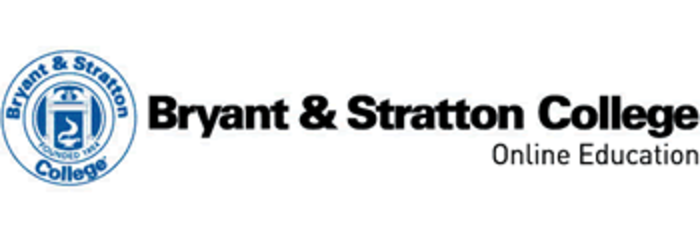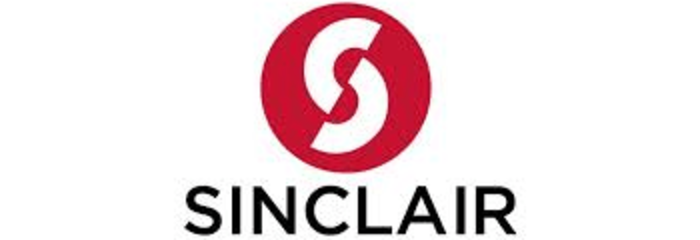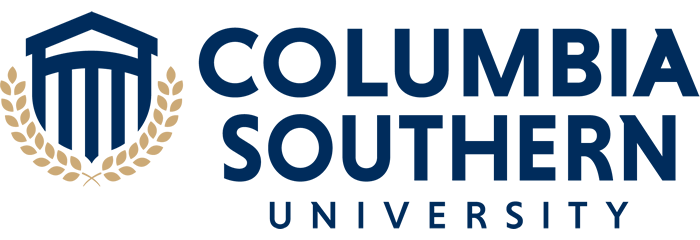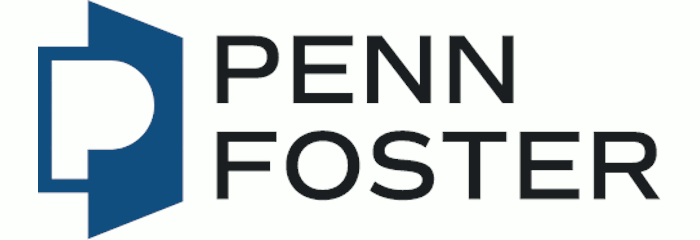2024 Best Online Medical Billing & Coding Certificate Programs
As healthcare systems transition to electronic health records and more complex billing systems, the need for individuals proficient in medical billing and coding remains crucial. To aid prospective students in making informed decisions about their education, we have compiled a list of the best online certificates in medical billing and coding.
Our rankings list of online certificates in medical billing and coding prioritizes schools with high Salary Scores and significant online enrollment, aiming to guide prospective students to make data-driven choices. View our methodology for more details about our list, or learn about OnlineU. You can also explore our list of the best associate degrees in medical billing and coding.
#1 Gwinnett Technical College Gwinnett Technical College Gwinnett Technical College Gwinnett Technical College
- Salary Score: A+
- Median Earnings: $49,199
- Online Enrollment: 649 enrolled
- Annual Tuition: $5,636
Gwinnett Technical College (GTC) is a public institution that offers an online Certificate in Medical Billing Clerk. GTC’s program focuses on critical office and technology skills and teaches students to use a wide range of hardware, software, and services. Some core classes for this certificate include Medical Office Billing/Coding/Insurance, Records Management, and Medical Terminology for Allied Health Sciences. This program can be completed in two to three semesters with a full-time schedule, and graduates go on to work as administrative assistants and medical insurance coders.
Why we like them: The program's requirement for a minimum typing speed ensures students are adequately prepared for success in the field. This skill not only improves job efficiency but helps maintain high levels of accuracy and productivity.
- Salary Score: A+
- Median Earnings: $49,199
- Financial Aid Recipients: 94%
- Avg. Aid Package: $4,922
- Avg. Graduation Rate: 36%
- Retention Rate: 57%
- Recommend Rate: N/A
- School Type: Nonprofit (Public)
#2 Anoka Technical College Anoka Technical College Anoka Technical College Anoka Technical College
- Salary Score: A+
- Median Earnings: $42,932
- Online Enrollment: 62 enrolled
- Annual Tuition: $6,075
Students at Anoka Technical College (ATC) with an interest in medical coding have the option to pursue an online Diploma in Medical Coding Specialist. This program teaches students to oversee medical data to ensure quality, accuracy, and confidentiality. Course offerings include Introduction to Health Information Management, Disease Conditions, and Microsoft Excel. Graduates are positioned for careers as health information clerks, medical records specialists, and medical coders.
Why we like them: This ATC program is accredited by the Commission on Accreditation for Health Informatics and Information Management Education (CAHIIM). You can choose to study at a part-time or full-time pace. Graduation can be achieved in three semesters by taking the full-time sequence. Part-time students may take up to two years to complete all requirements.
- Salary Score: A+
- Median Earnings: $42,932
- Financial Aid Recipients: 99%
- Avg. Aid Package: $4,367
- Avg. Graduation Rate: 31%
- Retention Rate: 73%
- Recommend Rate: N/A
- School Type: Nonprofit (Public)
#3 Moraine Park Technical College Moraine Park Technical College Moraine Park Technical College Moraine Park Technical College
- Salary Score: A+
- Median Earnings: $40,392
- Online Enrollment: 62 enrolled
- Annual Tuition: $6,793
Moraine Park Technical College (MPTC) is a public institution that offers an online Technical Diploma in Medical Coding Specialist. In about a year, students can learn how to review medical documentation and translate it into an alphanumeric classification system. Some core classes in this program include Healthcare Revenue Management, Current Procedural Terminology (CPT) coding, and Medical Terminology. Graduates may go on to work as hospital outpatient coders, charge master auditors, and insurance claims clerks, among other options.
Why we like them: Students use Canvas to access their coursework which is entirely online and asynchronous. This learning format encourages thoughtful reflection and deeper engagement with course content, as students have the opportunity to absorb information at their own speed and revisit materials as needed.
- Salary Score: A+
- Median Earnings: $40,392
- Financial Aid Recipients: 78%
- Avg. Aid Package: $4,378
- Avg. Graduation Rate: 58%
- Retention Rate: 79%
- Recommend Rate: N/A
- School Type: Nonprofit (Public)
#4 Rochester Community and Technical College Rochester Community and Technical College Rochester Community and Technical College Rochester Community and Technical College
- Salary Score: A+
- Median Earnings: $39,254
- Online Enrollment: 394 enrolled
- Annual Tuition: $5,670
Rochester Community and Technical College (RCTC) is a public university with a 100% online Diploma in Coding Specialist. The medical coding diploma's curriculum is designed to train students in the skills needed to code, classify, and index various procedures and diagnoses while also covering the laws and policies that protect patient data. Among the required classes are Medical Terminology for Health Professions, CPT Coding, and Pharmacology. Upon completion of the program, students are eligible to take the Certified Professional Coder exam. Career opportunities may be available as medical secretaries, medical transcriptionists, and health information technicians.
Why we like them: The healthcare industry often has varying demands for skilled professionals in medical billing and coding. RCTC also offers a Diploma in Healthcare Informatics that focuses more on securing and analyzing patient information. Having two diploma options in medical billing and coding benefits students by providing customization, so students can choose the best pathway that aligns with their career goals.
- Salary Score: A+
- Median Earnings: $39,254
- Financial Aid Recipients: 80%
- Avg. Aid Package: $5,965
- Avg. Graduation Rate: 22%
- Retention Rate: 55%
- Recommend Rate: N/A
- School Type: Nonprofit (Public)
#5 Northeast Wisconsin Technical College Northeast Wisconsin Technical College Northeast Wisconsin Technical College Northeast Wisconsin Technical College
- Salary Score: A+
- Median Earnings: $38,809
- Online Enrollment: 335 enrolled
- Annual Tuition: $6,965
Northeast Wisconsin Technical College (NWTC) is a public university that hosts an online Technical Diploma in Medical Coding Specialist. The curriculum teaches students the fundamentals of coding and billing along with diseases, anatomy, and other medical terminology used in professional settings. Required courses include Digital Literacy Healthcare, Healthcare Revenue Management, and Intermed Coding. The credits earned while earning this diploma can count toward an associate degree. Graduates may seek employment as medical coding specialists, coding analysts, and outpatient coders.
Why we like them: Online students at NWTC use Blackboard to complete their coursework online in an asynchronous format. This can promote inclusivity, accommodating various learning styles and preferences, and enabling students to participate in discussions and activities at times that suit them best.
- Salary Score: A+
- Median Earnings: $38,809
- Financial Aid Recipients: 67%
- Avg. Aid Package: $4,687
- Avg. Graduation Rate: 43%
- Retention Rate: 79%
- Recommend Rate: N/A
- School Type: Nonprofit (Public)
#6 Northcentral Technical College Northcentral Technical College Northcentral Technical College Northcentral Technical College
- Salary Score: A+
- Median Earnings: $38,389
- Online Enrollment: 337 enrolled
- Annual Tuition: $5,512
Northcentral Technical College (NTC) is a public institution that offers an online Technical Diploma in Medical Coding Specialist. Students can complete this online diploma in one to two years. Some core classes in this program are Digital Literacy for Healthcare, Foundations of HIM, and Healthcare Revenue Management. NTC graduates possess the skills to utilize electronic applications for coding and data collection, exhibit professional behavior and ethical conduct, and proficiently apply coding and reimbursement systems while collecting health data. They often work as coding specialists in healthcare facilities, such as hospitals, clinics, long-term care facilities, consulting firms, and governmental agencies.
Why we like them: At NTC, students use Canvas to access their coursework, which is all online and asynchronous, allowing learners to access course materials and complete assignments at their own pace and convenience. This flexibility is particularly advantageous for individuals with busy schedules or those in different time zones.
- Salary Score: A+
- Median Earnings: $38,389
- Financial Aid Recipients: 100%
- Avg. Aid Package: $8,388
- Avg. Graduation Rate: 33%
- Retention Rate: 63%
- Recommend Rate: N/A
- School Type: Nonprofit (Public)
#7 Sullivan University Sullivan University Sullivan University Sullivan University
- Salary Score: A+
- Median Earnings: $38,121
- Online Enrollment: 25 enrolled
- Annual Tuition: $19,740
Sullivan University (SU) is a private institution that hosts an online Certificate in Medical Coding. The goal of this certificate program in medical coding is to transform students into valuable assets within various healthcare settings. The curriculum is designed to help them acquire the expertise to convert medical documentation into diagnostic and procedural codes and utilize these codes following reimbursement protocols. Courses for this certificate include Advanced Medical Coding, Health Information Technology, and Pathophysiology with Pharmacology. SU graduates go on to work at doctors’ offices, clinics, hospitals, insurance companies, and medical billing agencies.
Why we like them: Graduates of SU's medical coding program can enter the field in just nine months, as they will have a specialized skillset, including knowledge of anatomy, medical terminology, and coding methodologies. With a promising job outlook and adherence to education standards set by the American Health Information Management Association (AHIMA), this program offers a fast-track route to a rewarding career in the growing field of medical coding.
- Salary Score: A+
- Median Earnings: $38,121
- Financial Aid Recipients: 99%
- Avg. Aid Package: $10,433
- Avg. Graduation Rate: 19%
- Retention Rate: N/A
- Recommend Rate: 39%
- School Type: For Profit
#8 Fisher College Fisher College Fisher College Fisher College
- Salary Score: A+
- Median Earnings: $38,060
- Online Enrollment: 167 enrolled
- Annual Tuition: $34,150
Fisher College (FC) is a small, private institution featuring an online Certificate in Medical Coding. This online certificate program can be entirely completed online, and most of the credits earned can be applied toward the Associate of Science degree in Health Information Technology. Some core classes for this certificate include Healthcare Reimbursement Methodologies, Essentials of Anatomy & Physiology, and Medical Terminology. At FC, students use Blackboard to access their coursework, which is fully online and asynchronous. This program prepares graduates to work at hospitals, clinics, ambulatory surgery centers, insurance, and more.
Why we like them: Students have the option to take the certification exam to achieve either Certified Coding Associate (CCA) or Certified Coding Specialist (CCS) credentials. This enhances student employability by aligning FC's medical coding program with industry standards, giving students a competitive edge.
- Salary Score: A+
- Median Earnings: $38,060
- Financial Aid Recipients: 97%
- Avg. Aid Package: $25,406
- Avg. Graduation Rate: 30%
- Retention Rate: 55%
- Recommend Rate: 50%
- School Type: Nonprofit (Private)
#9 Minnesota State Community and Technical College Minnesota State Community and Technical College Minnesota State Community and Technical College Minnesota State Community and Technical College
- Salary Score: A
- Median Earnings: $36,407
- Online Enrollment: 383 enrolled
- Annual Tuition: $5,900
Minnesota State Community and Technical College (MSCTC) students pursuing medical coding can enroll in an online Diploma in Medical Coding and Insurance. This program requires 50 credits to build skills in patient registration procedures, data management systems, and diagnosis coding. Included in the program are Medical Language Applications, Outpatient Coding, and Hospital Billing courses. Students must also complete a medical office capstone. Graduates may seek opportunities as medical secretaries, medical transcriptionists, and medical records and health information technicians.
Why we like them: You receive training in a wide range of insurance programs, from Medicaid and Medicare to workers compensation and disability payers. In addition to technical training, you'll also develop soft skills in communication, professionalism, critical thinking, and organization.
- Salary Score: A
- Median Earnings: $36,407
- Financial Aid Recipients: 90%
- Avg. Aid Package: $5,902
- Avg. Graduation Rate: 36%
- Retention Rate: 63%
- Recommend Rate: N/A
- School Type: Nonprofit (Public)
#10 Pittsburgh Technical College Pittsburgh Technical College Pittsburgh Technical College Pittsburgh Technical College
- Salary Score: A
- Median Earnings: $36,000
- Online Enrollment: 7 enrolled
- Annual Tuition: $16,974
Pittsburgh Technical College (PTC) is a small, private institution that offers an online Certificate in Medical Coding. This program can be completed in one to two years with a full-time schedule. PTC’s certificate program in medical coding provides students with experience in transforming written descriptions of medical data into alphanumeric designations. Some core classes in this program include Healthcare Delivery in the Medical Office, Diseases & Diagnostic Methods, and Foundations of Health Insurance. Graduates enter careers in the medical billing and coding field in settings such as hospitals, medical offices, and clinics.
Why we like them: At PTC, students use Blackboard to access their coursework, which is fully online and asynchronous. Asynchronous discussions and forums enable students to engage in thoughtful, well-reasoned discussions with peers, enhancing the learning experience. Without the pressure of real-time participation, students may feel more comfortable expressing their thoughts and ideas, fostering a more inclusive learning environment.
- Salary Score: A
- Median Earnings: $36,000
- Financial Aid Recipients: 97%
- Avg. Aid Package: $6,664
- Avg. Graduation Rate: 57%
- Retention Rate: 75%
- Recommend Rate: 67%
- School Type: Nonprofit (Private)
#11 Southwest Wisconsin Technical College Southwest Wisconsin Technical College Southwest Wisconsin Technical College Southwest Wisconsin Technical College
- Salary Score: A
- Median Earnings: $35,891
- Online Enrollment: 150 enrolled
- Annual Tuition: $6,731
Southwest Wisconsin Technical College (SWTC) is a small, public institution that features an online Technical Diploma in Medical Coding Specialist for students who possess analytical skills, attention to detail, an affinity for working with data, and a keen interest in the healthcare sector. Some core classes in this program are Health Revenue Management, Digital Literacy for Healthcare, and Medical Terminology. This program can be completed in one to two years with a full-time schedule. This diploma program prepares students for employment as outpatient coders, medical coding specialists, and claims analysts.
Why we like them: At SWTC, students use Schoology to access their coursework, which is entirely online and asynchronous. This learning format allows students from different time zones and locations to participate in the same course, promoting diversity and varied perspectives. Students also have more time to absorb and reflect on the material, potentially leading to better comprehension and retention.
- Salary Score: A
- Median Earnings: $35,891
- Financial Aid Recipients: 87%
- Avg. Aid Package: $5,756
- Avg. Graduation Rate: 61%
- Retention Rate: 73%
- Recommend Rate: N/A
- School Type: Nonprofit (Public)
#12 Carrington College Carrington College Carrington College Carrington College
- Salary Score: A
- Median Earnings: $35,863
- Online Enrollment: 16 enrolled
- Annual Tuition: $0
Carrington College is a private university with an online Certificate of Achievement in Medical Billing and Coding. Carrington students use a learning management system, where they can complete courses 100% online. The curriculum for this program teaches students how to prepare digital patient forms using medical software. Anatomy, medical terminology, medical records management, and regulatory standards are also explored. Students take five iterations of the core course Medical Billing and Coding Theory, along with separate application courses, before participating in an externship and career development seminar. Career opportunities may be available in entry-level roles as medical secretaries, medical records specialists, and administrative assistants.
Why we like them: Students must complete an externship in order to graduate, which can be a highly beneficial experience for individuals looking to kickstart their careers. This firsthand experience allows you to apply the theoretical knowledge gained in the classroom to real-world situations, helping you develop a deeper understanding of the medical billing and coding industry.
- Salary Score: A
- Median Earnings: $35,863
- Financial Aid Recipients: 89%
- Avg. Aid Package: $4,089
- Avg. Graduation Rate: 64%
- Retention Rate: 62%
- Recommend Rate: 25%
- School Type: For Profit
#13 Laramie County Community College Laramie County Community College Laramie County Community College Laramie County Community College
- Salary Score: A-
- Median Earnings: $34,628
- Online Enrollment: 180 enrolled
- Annual Tuition: $10,913
Students wanting to pursue medical coding at Laramie County Community College (LCCC) can apply for an online Associate Credit Certificate in Medical Claims Coding. Enrolled students must complete courses that cover basic and advanced medical coding and reimbursement practices. The curriculum features Computer Software for Medical Software Professionals, Medical Office Administrative Procedures, and Disease Processes for Coding. Virtual lab experiences are also required. This program trains graduates for careers as medical information technology specialists.
Why we like them: LCCC offers stacked certificates in health information technology and management. Once your medical claims coding certificate is complete, you can choose to enter the workforce, pursue a credit degree covering medical office essentials, or enroll in a full associate degree.
- Salary Score: A-
- Median Earnings: $34,628
- Financial Aid Recipients: 95%
- Avg. Aid Package: $5,787
- Avg. Graduation Rate: 27%
- Retention Rate: N/A
- Recommend Rate: N/A
- School Type: Nonprofit (Public)
#14 Rasmussen University Online Rasmussen University Online Rasmussen University Online Rasmussen University Online
- Salary Score: A-
- Median Earnings: $34,496
- Online Enrollment: 226 enrolled
- Annual Tuition: $11,171
Rasmussen University is a two-year institution that offers an online Medical Billing and Coding Certificate. Through Rasmussen’s fully remote classwork and virtual labs, students of the medical billing and coding program earn valuable hands-on coding and billing skills that will help them in their careers. All of the credits earned from this accredited school can also be applied toward associate and bachelor’s degrees at Rasmussen if students want to continue their education beyond the certificate level. With this certificate alone, students can pursue roles as medical billers and coders, of course, but also patient services team members or patient registrars.
Why we like them: With a total of ten classes, distance learners can complete this degree with 36 credit hours. Since there are eight start times throughout the school year, students can start sooner when they are ready to begin. Rasmussen’s site claims that students can finish in as few as nine months, allowing them to enter the workforce faster.
- Salary Score: A-
- Median Earnings: $34,496
- Financial Aid Recipients: 94%
- Avg. Aid Package: $6,067
- Avg. Graduation Rate: 30%
- Retention Rate: 53%
- Recommend Rate: 34%
- School Type: For Profit
#15 Alexandria Technical and Community College Alexandria Technical and Community College Alexandria Technical and Community College Alexandria Technical and Community College
- Salary Score: A-
- Median Earnings: $33,500
- Online Enrollment: 583 enrolled
- Annual Tuition: $6,107
Students enrolled at Alexandria Technical and Community College (ATCC) can study medical coding through an online Medical Coding Specialist Diploma. Students gain an understanding of coding systems, human anatomy, and physiology. The curriculum includes required courses such as Electronic Health Records, Inpatient Coding, Electronic Health Records, and Medical Billing. Upon graduation, individuals may venture into professions like coding specialists, auditors, and reimbursement specialists.
Why we like them: If you're a military student, you can use your experience towards medical coding credits through Minnesota's Global Military Learning Network (MN-GMLN). ATCC also offers resources to various scholarships for medical coding students.
- Salary Score: A-
- Median Earnings: $33,500
- Financial Aid Recipients: 93%
- Avg. Aid Package: $5,448
- Avg. Graduation Rate: 57%
- Retention Rate: 68%
- Recommend Rate: N/A
- School Type: Nonprofit (Public)
#16 Northwood Technical College Northwood Technical College Northwood Technical College Northwood Technical College
- Salary Score: A-
- Median Earnings: $33,261
- Online Enrollment: 110 enrolled
- Annual Tuition: $6,624
At Northwood Technical College, students interested in studying medical coding can pursue an online Technical Diploma in Medical Coding Specialist. This one-year program provides students with the skills needed to assign, sequence, and process medical information. Example coursework includes Intermediate Coding, Human Disease for the Health Professions, and ICD Diagnosis Coding. Future careers for graduates include entry-level medical coding roles at physician practice groups, hospitals, and healthcare agencies.
Why we like them: Flexible scheduling options and various start dates are available for working students, allowing you to study while gaining relevant work experience. You can apply the credits earned in your technical diploma toward Northwood Technical College's online Associate in Health Information Technology.
- Salary Score: A-
- Median Earnings: $33,261
- Financial Aid Recipients: 81%
- Avg. Aid Package: $5,910
- Avg. Graduation Rate: 54%
- Retention Rate: 77%
- Recommend Rate: N/A
- School Type: Nonprofit (Public)
#17 Northwest Technical College Northwest Technical College Northwest Technical College Northwest Technical College
- Salary Score: A-
- Median Earnings: $33,225
- Online Enrollment: 186 enrolled
- Annual Tuition: $6,226
Students at Northwest Technical College (NTC) may pursue medical coding through an online Certificate in Medical Coding. The program teaches students how to manage and process patient accounts using medical language applications and health insurance procedures. Core coursework includes Medical Office Procedures, Inpatient Billing, and Medical Terminology. Potential medical coding jobs can be found in hospitals, insurance companies, and public health agencies.
Why we like them: NTC works with Minnesota employers to help them hire qualified residents through their Workforce Development Program. This program also offers scholarships for full-time medical coding students who are also Minnesota residents. Free tutoring services, library resources, and proctored exams are available for online students.
- Salary Score: A-
- Median Earnings: $33,225
- Financial Aid Recipients: 81%
- Avg. Aid Package: $6,329
- Avg. Graduation Rate: 46%
- Retention Rate: 56%
- Recommend Rate: N/A
- School Type: Nonprofit (Public)
#18 National American University Online National American University Online National American University Online National American University Online
- Salary Score: B+
- Median Earnings: $32,694
- Online Enrollment: 19 enrolled
- Annual Tuition: $11,370
National American University Online (NAU) offers medical coding students an online Diploma in Medical Billing and Coding. Although not a complete associate degree, this 60-credit program is designed to take two years and features general education requirements and a medical billing and coding core. Sample courses include Medical Records Management, Healthcare Coding and Billing, and Medical Terminology for Health Professions. Graduates may find careers as medical records technicians, health information specialists, and medical records analysts.
Why we like them: The general education requirements have anatomy, English, and mathematics courses but also include career management and professional strategic studies to help prepare you for the workforce. You'll also be tested on your effectiveness and accuracy when it comes to inputting vital patient information.
- Salary Score: B+
- Median Earnings: $32,694
- Financial Aid Recipients: 83%
- Avg. Aid Package: $4,972
- Avg. Graduation Rate: 12%
- Retention Rate: 33%
- Recommend Rate: 43%
- School Type: For Profit
#19 Central Maine Community College Central Maine Community College Central Maine Community College Central Maine Community College
- Salary Score: B+
- Median Earnings: $32,282
- Online Enrollment: 104 enrolled
- Annual Tuition: $6,640
Interested medical coding students at Central Maine Community College (CMCC) have the opportunity to take an online Certificate in Medical Coding and Electronic Health Records. This program focuses on data management, classification, and record keeping. Students must participate in courses such as Medical Specialities and Pathophysiology, Medical Terminology, and Health Information Management. Upon completion, graduates can explore medical coding careers in hospitals, home health agencies, and physician practices.
Why we like them: CMCC provides a clear path to earning your undergraduate degree with an online medical coding and electronic health records associate degree and a transfer agreement with Saint Joseph's College of Maine, a 4-year university with an online Bachelor of Science in Health Information Management.
- Salary Score: B+
- Median Earnings: $32,282
- Financial Aid Recipients: 93%
- Avg. Aid Package: $7,856
- Avg. Graduation Rate: 23%
- Retention Rate: 55%
- Recommend Rate: N/A
- School Type: Nonprofit (Public)
#20 Northland Community and Technical College Northland Community and Technical College Northland Community and Technical College Northland Community and Technical College
- Salary Score: B+
- Median Earnings: $32,124
- Online Enrollment: 539 enrolled
- Annual Tuition: $6,243
Northland Community and Technical College (NCTC) offers medical coding students an online Medical Office Specialist Diploma. This program incorporates basic administrative and more advanced medical billing processes to provide students with a well-rounded curriculum. Coursework includes Medical Office Procedures, Medical Billing-Insurance, and Business Communications. Graduates can aspire to careers as medical secretaries, medical transcriptionists, and medical records and health information technicians.
Why we like them: NCTC may waive certain credit requirements if you've already completed related medical, administrative, biology, or health training. Online students can adjust their semester schedules by working with an academic advisor.
- Salary Score: B+
- Median Earnings: $32,124
- Financial Aid Recipients: 88%
- Avg. Aid Package: $5,957
- Avg. Graduation Rate: 47%
- Retention Rate: 66%
- Recommend Rate: N/A
- School Type: Nonprofit (Public)
#21 Stark State College Stark State College Stark State College Stark State College
- Salary Score: B+
- Median Earnings: $31,860
- Online Enrollment: 864 enrolled
- Annual Tuition: $7,644
Stark State College (SSC) offers students interested in medical coding an online Career Enhancement Certificate in Medical Billing Specialist. The curriculum covers various insurance processes, including claims, reimbursements, billing issues, audits, and appeals. Courses include Introduction to Medical Billing Graduates, Medical Claims Methodology, and Healthcare Legal and Ethical Issues. Graduates can go after careers as insurance claims and policy processing clerks, health information technologists, and medical billing clerks.
Why we like them: A special emphasis is placed on patient confidentiality and ethics, with additional coursework exploring the broader concept of healthcare delivery in the US. Upon completing this certificate, you'll be eligible to take certification exams like the Certified Billing & Coding Specialist (CBCS) and Certified Professional Biller (CPB).
- Salary Score: B+
- Median Earnings: $31,860
- Financial Aid Recipients: 95%
- Avg. Aid Package: $5,909
- Avg. Graduation Rate: 15%
- Retention Rate: 49%
- Recommend Rate: 44%
- School Type: Nonprofit (Public)
#22 Minnesota West Community and Technical College Minnesota West Community and Technical College Minnesota West Community and Technical College Minnesota West Community and Technical College
- Salary Score: B+
- Median Earnings: $31,801
- Online Enrollment: 466 enrolled
- Annual Tuition: $12,332
Minnesota West Community and Technical College (MWCTC) students have the opportunity to pursue medical coding through an online Diploma of Medical Coding Specialist. This 34-credit program asks that students have experience with spreadsheets and word processing applications. The curriculum incorporates beginner and advanced medical coding techniques, along with basic medical and physiological terminology. Courses include Body Structure and Function, Medical Office Procedures, and Diagnosis Coding. Graduates with similar diplomas work as billing clerks, health information technologists, and medical records specialists.
Why we like them: This diploma is approved by the American Health Information Management Association (AHIMA) as part of their Professional Certificate Approval Program (PCAP). You can also pursue online professional development courses in medical coding from MWCTC. These can be taken individually for less than $200 each.
- Salary Score: B+
- Median Earnings: $31,801
- Financial Aid Recipients: 92%
- Avg. Aid Package: $6,403
- Avg. Graduation Rate: 44%
- Retention Rate: 67%
- Recommend Rate: N/A
- School Type: Nonprofit (Public)
#23 Purdue Global Purdue Global Purdue Global Purdue Global
- Salary Score: B
- Median Earnings: $30,906
- Online Enrollment: 264 enrolled
- Annual Tuition: $14,445
Students at Purdue Global with an interest in medical coding have the opportunity to take an online Medical Billing and Coding Certificate. Students take courses in business, information technology, and healthcare while developing administrative and software skills. Required courses include Reimbursement Methodologies, Pharmacology, and Medical Insurance and Billing, in addition to a final proctored exam and practicum. Graduates may seek jobs as medical records specialists, medical secretaries, and administrative assistants.
Why we like them: You can choose which proctored exam you take. Options include Certified Billing and Coding Specialist (CBCS), Certified Coding Associate (CCA), and Certified Coding Specialist (CCS), among others. If you've worked in medical billing or coding prior to enrollment, you can use your experience to replace some required credits.
- Salary Score: B
- Median Earnings: $30,906
- Financial Aid Recipients: 60%
- Avg. Aid Package: $8,815
- Avg. Graduation Rate: 28%
- Retention Rate: 17%
- Recommend Rate: 74%
- School Type: Nonprofit (Public)
#24 Columbus State Community College Columbus State Community College Columbus State Community College Columbus State Community College
- Salary Score: N/A
- Median Earnings: N/A
- Online Enrollment: 7,033 enrolled
- Annual Tuition: $10,611
Students at Columbus State Community College (CSCC) with an interest in medical coding have the option to pursue an online Certificate in Medical Coding. This program provides entry-level skills, such as coding and classifying procedures, for aspiring medical office professionals. Coursework is mostly offered online, but students are required to come to campus for certain courses, proctored exams, and to attend class meetings. Requirements include Intermediate Coding, Medical Reimbursement, Human Anatomy, and a field experience project. Graduates are positioned for careers as medical secretaries, medical registrars, and medical transcriptionists.
Why we like them: Ohio's College Credit Plus (CCP) program allows high school students to take college courses to get a jump on their medical coding studies. CCP's Momentum Scholarship awards $1,000 per year for qualifying students who take part in the program.
- Salary Score: N/A
- Median Earnings: N/A
- Financial Aid Recipients: 81%
- Avg. Aid Package: $6,473
- Avg. Graduation Rate: 21%
- Retention Rate: 63%
- Recommend Rate: 100%
- School Type: Nonprofit (Public)
#25 Bryant & Stratton College Online Bryant & Stratton College Online Bryant & Stratton College Online Bryant & Stratton College Online
- Salary Score: N/A
- Median Earnings: $24,539
- Online Enrollment: 2,538 enrolled
- Annual Tuition: $15,292
Bryant & Stratton College Online (BSC) students pursuing medical coding can enroll in an online Certificate in Medical Coding. This program teaches students how to assign medical codes, maintain patient records, and review clinical records. Included in the program are Clinical Foundations, Introduction to Coding, and Electronic Health Records courses. Students may graduate in 16 months to seek medical coding jobs in hospitals, physician offices, and insurance companies.
Why we like them: BSC's Career LifePrep program offers resources to ensure you stay on track toward a medical coding career. You'll receive personal career consultations, professional network contacts, alum support, and advice from industry professionals to navigate life and career hurdles long after graduation.
- Salary Score: N/A
- Median Earnings: $24,539
- Financial Aid Recipients: 91%
- Avg. Aid Package: $5,986
- Avg. Graduation Rate: 29%
- Retention Rate: 22%
- Recommend Rate: 54%
- School Type: Nonprofit (Private)
#26 Sinclair Community College Sinclair Community College Sinclair Community College Sinclair Community College
- Salary Score: N/A
- Median Earnings: $22,941
- Online Enrollment: 2,203 enrolled
- Annual Tuition: $8,316
At the Sinclair Community College (SCC), students interested in studying medical coding can pursue an online Technical Certificate in Medical Coding and Billing Specialist. This program provides training in diagnosis coding and medical reimbursement procedures. Students also learn about medical professionalism, ethics, and communication. Example coursework includes Introduction to Healthcare Delivery, Medical Terminology, and Introductory Medical Office Coding. Future careers for graduates include medical coding and billing specialists in physician offices, insurance companies, and outpatient billing services.
Why we like them: Coursework can be completed entirely online, or Ohio residents can choose to take some courses on campus in Dayton. Graduates will be prepared for a variety of credentialing exams, including Certified Coding Specialist - Physician (CCS-P) and Certified Professional Coder - Apprentice (CPC-A).
- Salary Score: N/A
- Median Earnings: $22,941
- Financial Aid Recipients: 84%
- Avg. Aid Package: $5,241
- Avg. Graduation Rate: 21%
- Retention Rate: 73%
- Recommend Rate: 64%
- School Type: Nonprofit (Public)
ADVERTISEMENT
Online Medical Billing & Coding Certificate Degrees You May Be Interested In
Overview of Online Medical Billing & Coding Certificates
Have you ever seen a doctor's handwritten medical notes and wondered how that information actually gets translated from doctor-speak to something patients, office and hospital staff, and insurance companies can read and understand? Moreover, have you ever wondered how health insurance providers know the specific types of medical services to bill for after you’ve been to the doctor? Of course, we all ponder this upon receiving an insurance provider’s explanation of benefits statement in the mail. A defined billing and coding system in place allows these various entities to communicate and assess patient charges accurately. This is where certified medical billing and coding professionals come in.
If you’re considering pursuing a career in medical billing and coding, it’s important to have a thorough understanding of the different specialty areas in which you can earn medical billing and coding certifications and how doing so can impact your career path.
What Is Medical Billing & Coding?
Billing and coding are actually separate practices, but they work in tandem — often with one individual performing both tasks. Each function relies on a complex, global classification system of codes, which build patient health records by categorizing illnesses, injuries, and medical procedures. A medical coder's primary role is to read patient records, as transcribed by clinicians, and apply the correct codes to capture patient data. These codes translate information numerically for billing and analytical purposes, serving as a language between medical, insurance, and government entities. Medical billers are responsible for the financial side of the business. They decipher these codes to create patient bills and file insurance claims for payment.
To enter either field, you'll need a certificate or associate degree in medical billing or coding, either of which you can earn online. Students who opt for online certificates will learn about medical terminology, code systems, healthcare administration, healthcare information privacy laws and procedures, billing, and bookkeeping fundamentals. The most affordable certificate programs are usually offered through community or technical colleges, but some four-year colleges also feature online certificates.
What Are Medical Billing and Coding Certifications?
An individual with a medical billing and coding certification has gained in-depth knowledge and skills that demonstrate professional expertise in a respective niche. Although medical billing and coding professionals are often tasked with the billing and coding aspects of their job, certifications tend to reflect either one aspect or the other.
Although medical billing and coding professionals are often tasked with the billing and coding aspects of their job, certifications tend to reflect either one aspect or the other.
In short, medical coders are responsible for translating clinicians' medical notes and diagnoses concerning a patient and assigning medical codes that confirm the medical records. Once a patient’s medical codes have been assigned, medical billers create the patient’s bill and file the relevant health insurance claims. Online medical billing and coding programs help prepare you for certification in your desired area.
Certificate Requirements
Because medical coding and billing careers only require certificates, they often appeal to individuals who don't have the time, finances, or desire to pursue associate or bachelor's degrees. Whether you are enrolled online or in person, certificate programs are typically designed to take 27-30 credit hours. This works out to 9-12 months of full-time study. Additionally, these certificate programs require only a high school diploma or GED.
What Can I Do With an Online Medical Billing and Coding Certificate?
An online certificate in medical billing and coding can open the door to entry-level positions within the field and is often the first stepping stone to higher credential levels and specializations. Medical billers and coders are necessary in nearly every healthcare setting, from hospitals and urgent care clinics to long-term care facilities. Some graduates may go on to work outside of patient care at major insurance companies, government organizations, or in healthcare consulting.
Medical records specialists earn a median of $47,180 per year, according to the most recent data from the Bureau of Labor Statistics (BLS). Medical billing and coding is an industry with a variety of different career paths and education options. Many professionals continue their education with associate, bachelor's, and master's degrees in medical billing and coding as well as related fields. Earning further certifications can also help boost salary and unlock new job opportunities.
How To Become a Certified Medical Biller or Coder
The first step to becoming a certified medical biller or coder is to participate in an online or in-person educational program specific to your desired type of certification. Individuals with a high school diploma or GED are eligible to pursue any number of professional coding certifications.
Although certification programs include content that is unique to their respective certifications, a common curriculum taught across programs includes topics such as professional ethics, billing and coding technologies, medical terminology, and patient confidentiality. Common curriculum elements are aimed at educating participants with healthcare industry knowledge, specifically. Some examples include coursework that coversthe Healthcare Common Procedure Coding System (HCPCS) and associated Current Procedural Terminology (CPT) coding and International Classification of Diseases (ICD) coding. Certificate programs may also cover more generalized online courses in areas such as anatomy and physiology.
The final steps to earn a professional certification and begin your coding career involves registering for and successfully passing the respective certification exam. Most participants spend a couple of weeks studying and taking practice exams before sitting for their certification exam.
Career Opportunities in Medical Billing and Coding
Although "medical coder" and "medical biller" are generic titles for some jobs in the healthcare industry, the range of actual titles and duties can vary depending on an employee's certifications, workplace setting, and amount of experience.
In general, the 2022 American Academy of Professional Coders member survey shows that those with core credentials, such as Certified Professional Billers (CPB) or Certified Professional Coders (CPC), tend to earn median salaries between $56,652 and $64,995. Those with advanced credentials, including Certified Professional Medical Auditors (CPMA) and Certified Professional Compliance Officers (CPCO), earn median salaries of up to $80,550 per year.
Earning an associate or bachelor's degree can help professionals boost their salary and progress their careers, but those with master's degrees see the highest salary increase as they qualify for advanced positions. Furthermore, the survey shows that those who work in large health or hospital systems earn the highest average salaries.
Industry Certifications
Students interested in niche areas of medical billing and coding can choose from over 20 specialty certification programs. Through these programs, students can become certified Ambulatory Surgery Center Coders, Certified Family Practice Coders, Certified Rheumatology Coders, and more. Because billing and coding graduates have so many choices of certifications, it's important to discuss the options with faculty and professionals currently working in the field.
Several professional organizations provide specialty certifications for medical coders and billers, so it can be difficult to know which one to obtain. Each group has different requirements for its certifications, but most require students to graduate from an accredited coding or billing program, work a set amount of time in the field, and join the organization as a dues-paying member.
We've detailed the two largest certification organizations below:
AAPC
The American Academy of Professional Coders (AAPC) has 200,000 members and offers one biller certification and six coder certifications. AAPC exam requirements include current AAPC membership and two years of coding or billing experience for entry-level credentials. An associate degree is recommended but not required.
AHIMA
The American Health Information Management Association (AHIMA) is the second-largest medical coding and biller certification body, with 103,000 members. It provides three certification options. First, AHIMA offers a Certified Coding Associate credential for professionals with at least six months of experience. It also offers two Certified Coding Specialist credentials for those with at least two years of experience.
How Much Do Medical Billing and Coding Certifications Cost?
When reviewing the cost of obtaining a particular certification, there are several things you’ll want to include in your calculations, such as the program cost and certification exam fee. The exam fee alone runs anywhere from $200 to $400. If you are acquiring an industry certification through a certification-granting organization, you may also be required to purchase an association membership.
Beyond the minimal requirement of having a high school diploma or GED, there are multiple educational paths you can take in order to sit for your certification exam. The costs vary depending on your approach.
While a degree in higher education isn’t required, some students choose to pursue a certificate or an affordable associate degree in medical billing and coding.
Certification-granting organizations, like the AAPC, offer customized industry certification prep programs that range from $2,500 to $3,500. Since these programs do not require the same time commitment and well-rounded education in healthcare and science topics, they are not considered as prestigious.
Ultimately, you want to choose a program that meets your personal and professional needs and provides a healthy work/life balance. Therefore, it's important to think about the potential indirect costs, financial and otherwise, for each option:
- What type of time commitment should you expect?
- If you work full-time, can you continue working at the same pace during your studies?
- Will a program's curriculum be sufficient to help you pass the certification exam at the end?
- Will you need to borrow students loans or apply for financial aid to pay for the program?
What Are the Benefits of Being a Certified Medical Biller or Coder?
Aside from the functional knowledge gained and official recognition of career field expertise, being a certified medical biller, coder, or specialist can make you a more marketable professional in your chosen specialty area. While a well-respected certification is an excellent resume booster at the most basic level, the benefits extend far beyond this new line of ink on your resume.
Put yourself in the shoes of a hiring manager reviewing your application for a new job. The employer has combed through almost all of the applications, but nothing has really stood out. Most applicants have similar educational backgrounds, relevant work experience, and put together a visually-appealing and grammatically-correct resume. And suddenly, your application comes up in the review queue.
Similar to two previously-reviewed applicant resumes, yours checks all the boxes: education, experience, and intangibles. However, there’s one thing in particular that clearly differentiates you from the other candidates, which is that you’re a Certified Cardiology Coder (CCC).
A CCC certification shows your commitment to excellence in the medical coding niche, a strong professional drive, and a feeling that you’ll bring actual value to a cardiology clinic.
FAQs About Medical Billing and Coding Certifications
Is a Medical Billing and Coding Certification Worth It?
Becoming a certified coder can serve as a catalyst for career growth. However, it’s always wise to weigh the potential benefits and drawbacks as you consider your options.
How Long Does It Take To Earn a Medical Billing or Coding Certification?
Technically, you can pass a certification exam with no time commitment, though this is rare. Most candidates complete a test preparation program that takes a few months of intensive study, and others choose to earn a one-year certificate or two-year associate degree first.
Which Certification Is Best for Medical Billing and Coding?
There isn't necessarily one certification that's better than all others; it all depends on what type of role you want to perform. Read job posts in your preferred area of expertise, such as inpatient coding or document improvement, to see what employers are looking for. You can also read AAPC and AHIMA salary surveys to find the certifications that tend to lead to higher wages.
Which Medical Coding and Billing Certification Pays the Most?
According to a 2022 survey, the highest paying AAPC certification is the Certified Professional Compliance Officer, which boasts a starting income of $45,701 per year. AHIMA's most recent salary data is from 2019, at which time their most remunerative certification was the Certified Documentation Improvement Practitioner credential.
What Are the Prerequisites for Medical Billing and Coding Certificates?
In an online certificate program through a college, a high school diploma or GED is often the only requirement. Depending on the school, you may also need to show SAT or ACT scores at a certain level and/or a minimum GPA. Additionally, colleges may request some prerequisite courses.
For industry certifications, on the other hand, you must have at least one year of professional medical coding experience. You can pass with a certification exam score of 70% or greater, and then 12 hours of continuing education is required each year to subsequently maintain the certification.
What Skills Will I Learn in a Medical Billing and Coding Certificate Program?
In a medical billing and coding certificate program, you'll develop important career-based skills related to billing, medical terminology, health insurance, legal policies, and more.
Why Trust Us?
27 Data Researchers
60,000 Degrees Researched Annually
20,000 Hours Spent on Research Annually
Launching Rankings Since 2009
